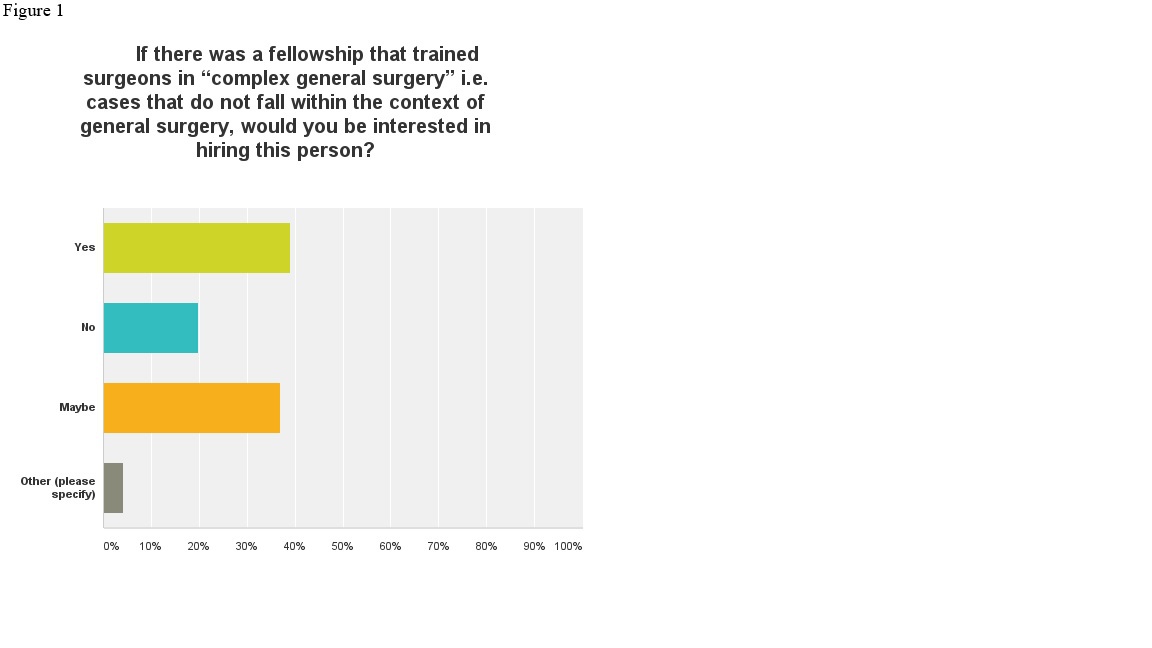|
Back to 2017 Posters
THE GI SURGERY JOB MARKET AND ASSESSING NEED FOR A COMPLEX GI SURGICAL FELLOWSHIP
Edward E. Cho*1, Kenric Murayama2, Matthew M. Hutter3, Frances Lewis1, D Rohan Jeyarajah1
1Surgery, Methodist Health System, Dallas, TX; 2Department of Surgery, University at Hawaii, Kaka'ako, HI; 3Department of Surgery, Massachusetts General Hospital, Boston, MA
Introduction
Several surgical organizations have been in collaboration through an Advanced Gastrointestional (GI) Surgery Task Force in an effort to better define advanced GI surgery training and to do a needs assessment of health systems, departments and practice groups interested in hiring a GI surgeon. The aim of this survey is to identify qualifications of prospective job candidates that might be of interest to a GI surgeon.
Method
This is a SSAT sponsored 20-questions survey which was sent out to the Society members in general surgery practices (mix of hospital based and private) across the United States through an online electronic survey software. Descriptive statistics were generated for aggregate survey responses.
Results
We had a total of 285 responses. Majority (92%) preferred hiring a surgeon who has completed a post graduate fellowship. Type of fellowship preferred by the prospective employers varied depending on the focus and the need of the individual practices. Most important characteristic that the employers sought were personal traits displayed through references, letters of recommendation and work ethic, followed by technical skills, and completion of fellowship. Most of the responders felt that a complex GI surgery fellowship may be an attractive qualification in prospective job candidates (Figure 1).
Conclusion
Our survey showed that the majority of surgery practices in the US prefer fellowship trained candidates as potential hires. Only a small minority (< 20%) of those surveyed felt that completing a “complex general surgery” fellowship would not give prospective candidates an advantage in obtaining a job. Our results indicate a growing need for a complex GI surgery fellowship, especially in light of decreasing exposure and experience of complex cases during surgical residency training.

Back to 2017 Posters
|


